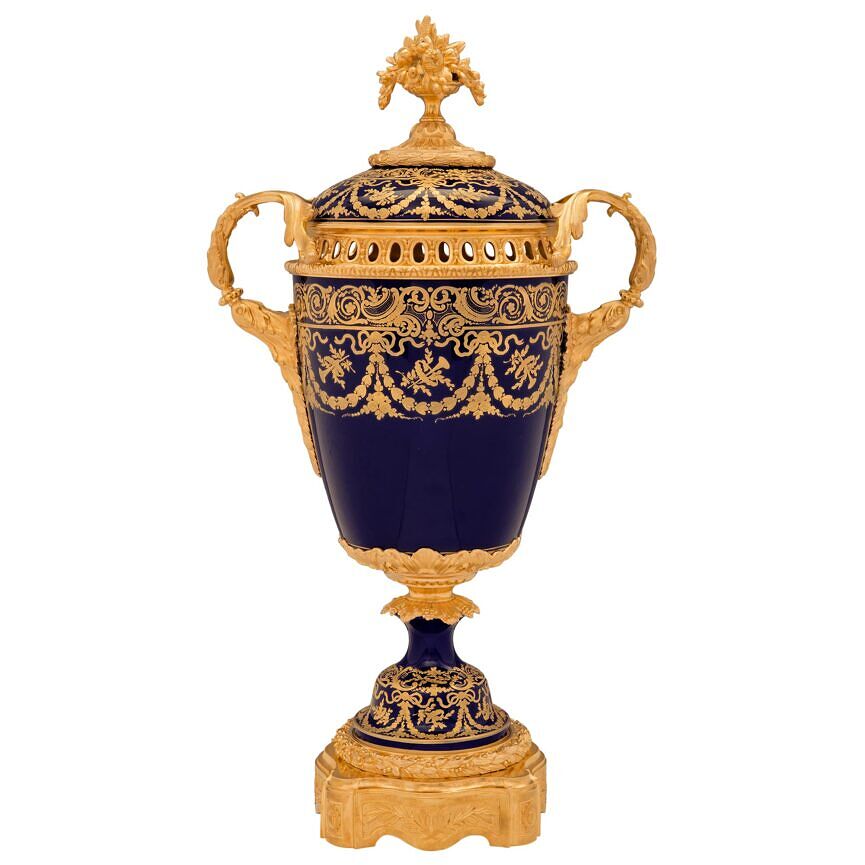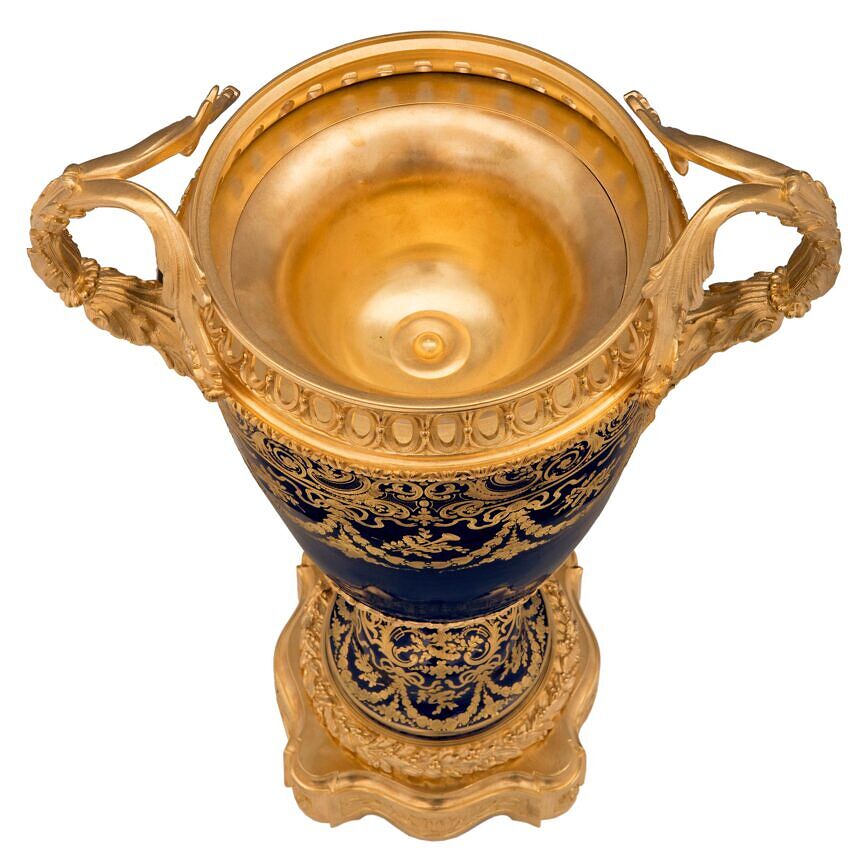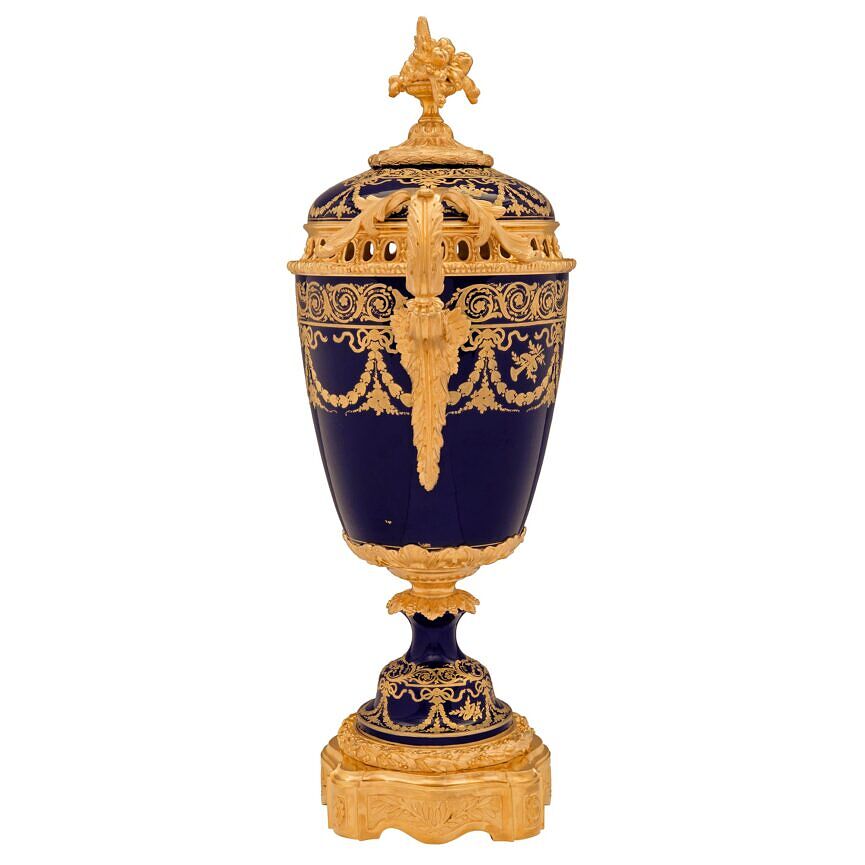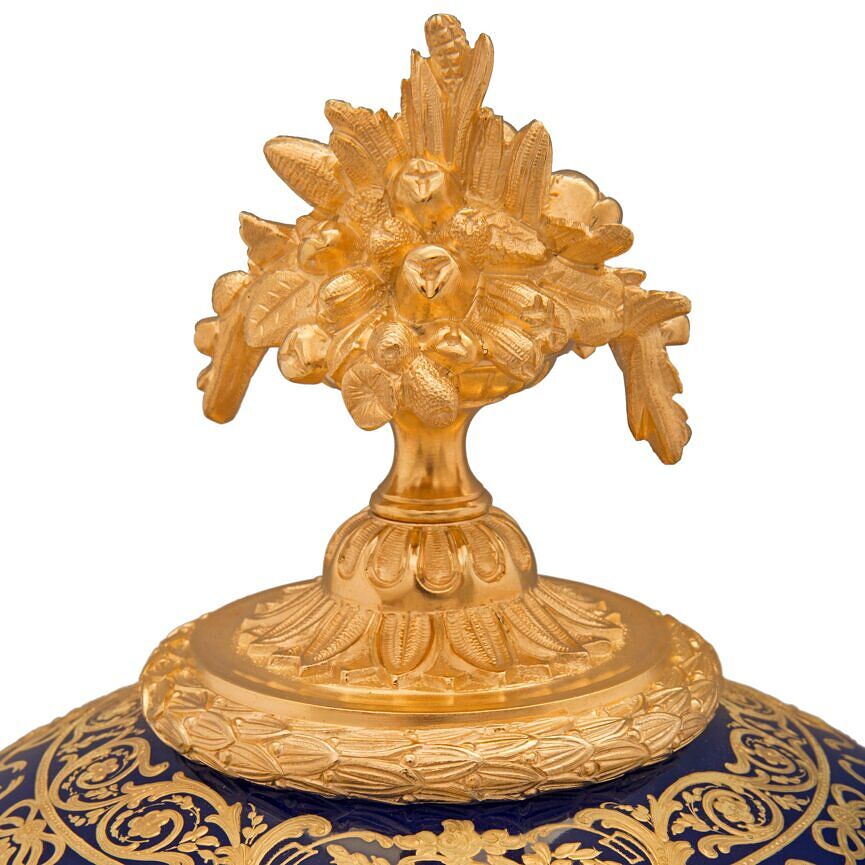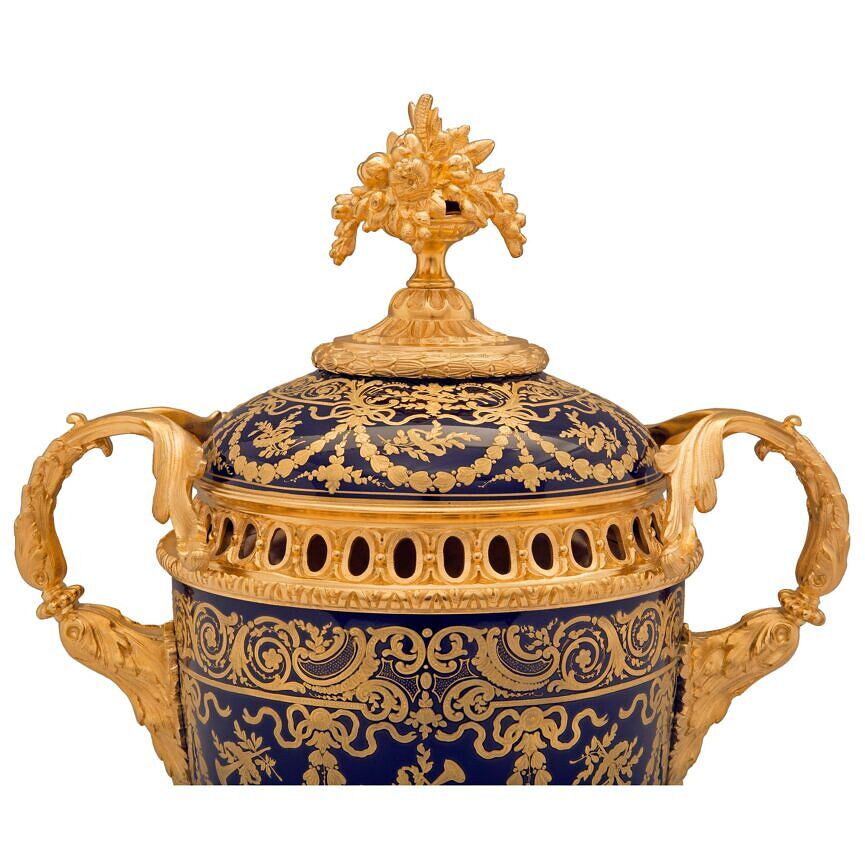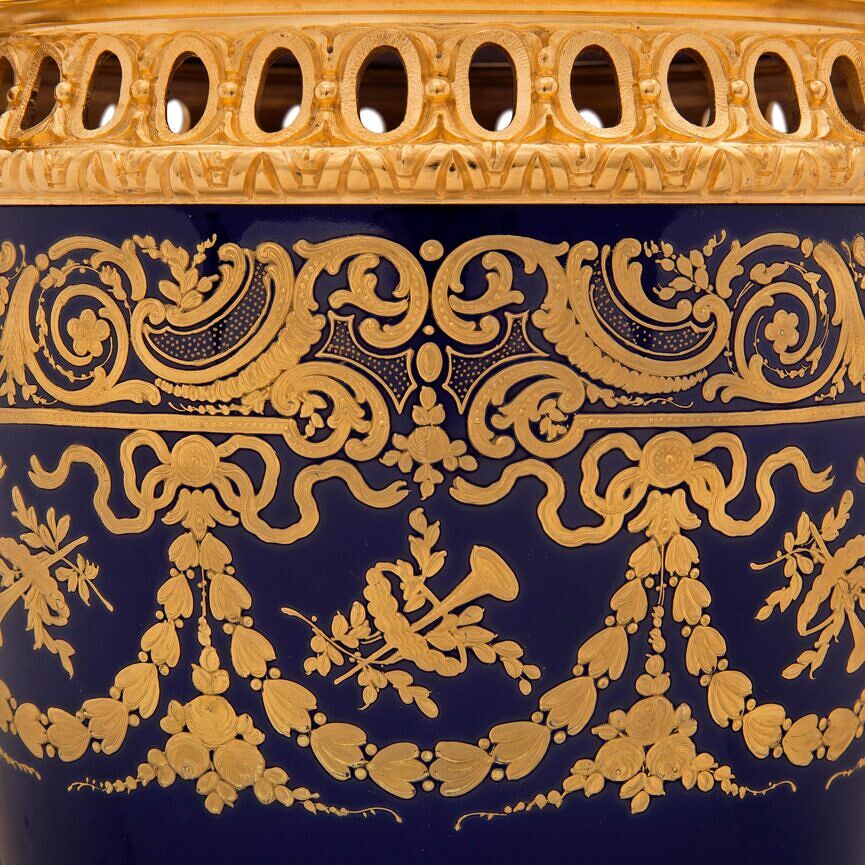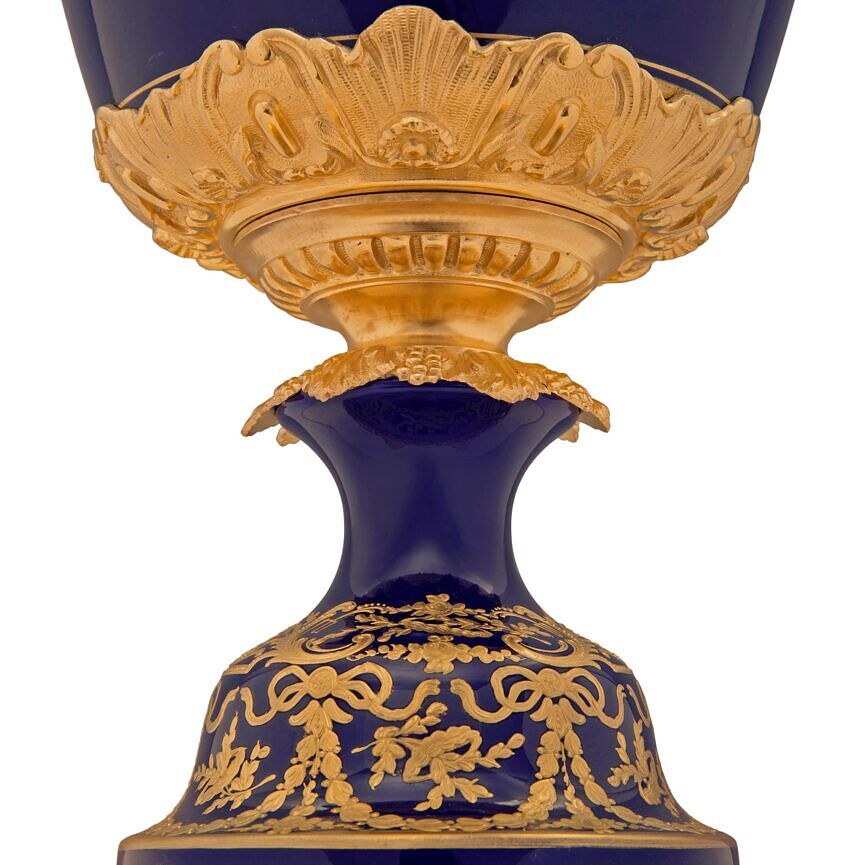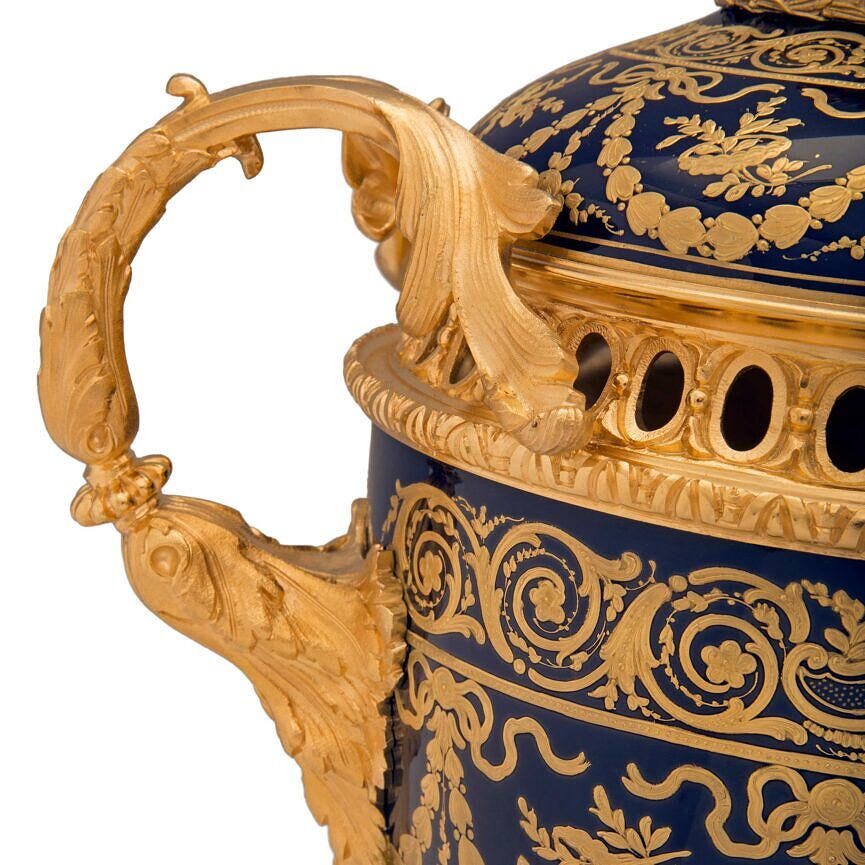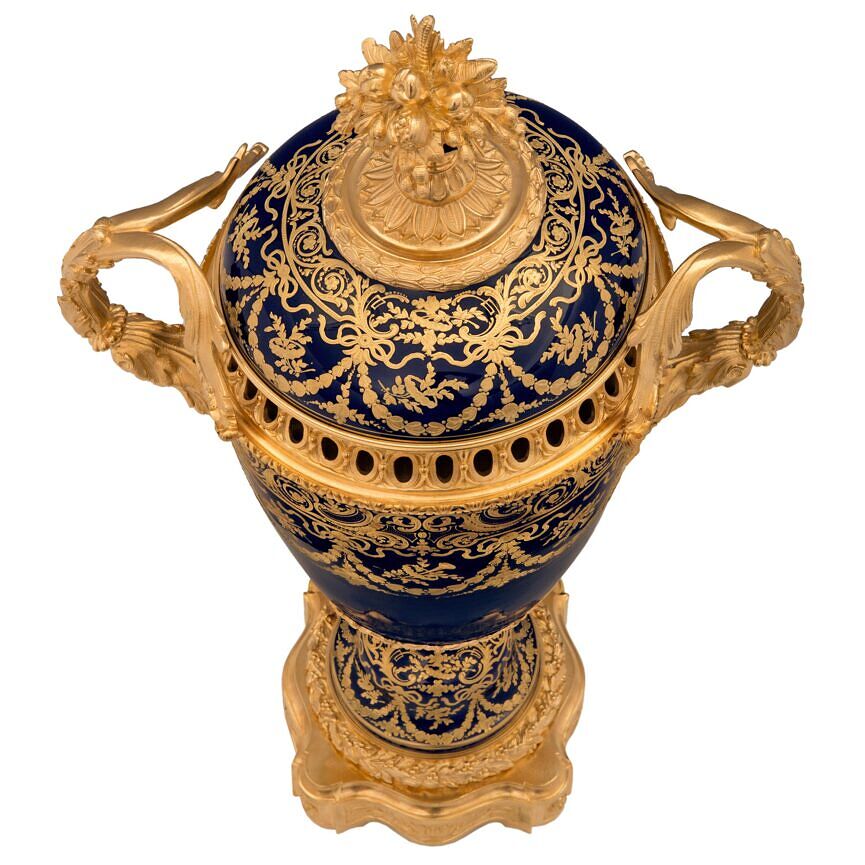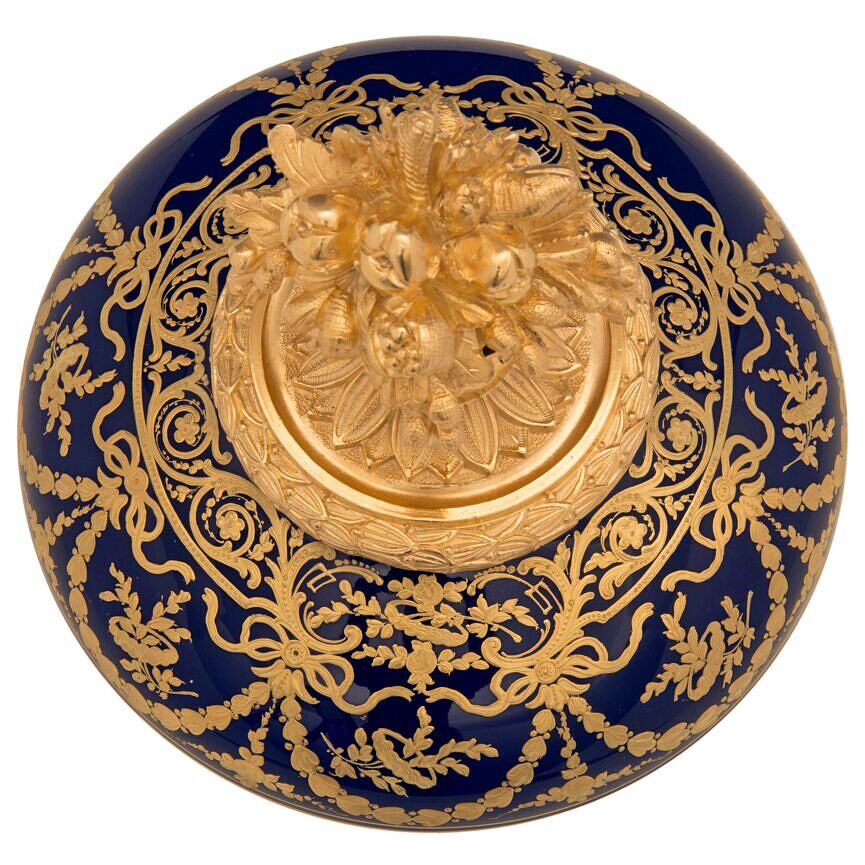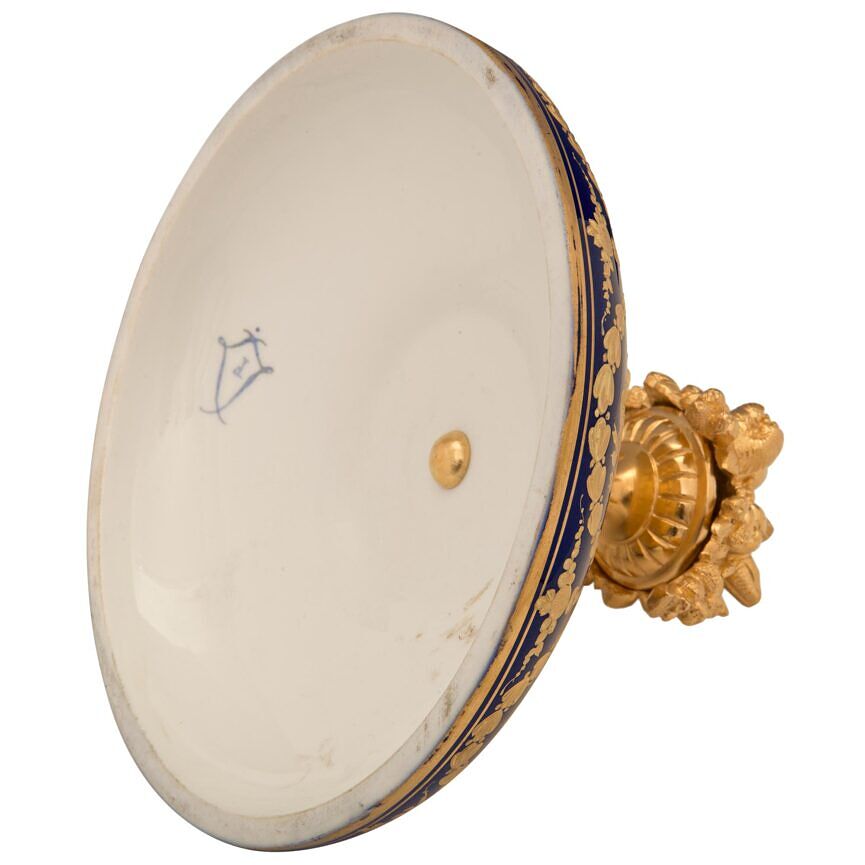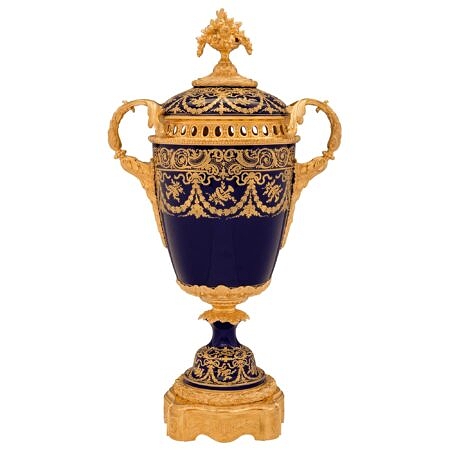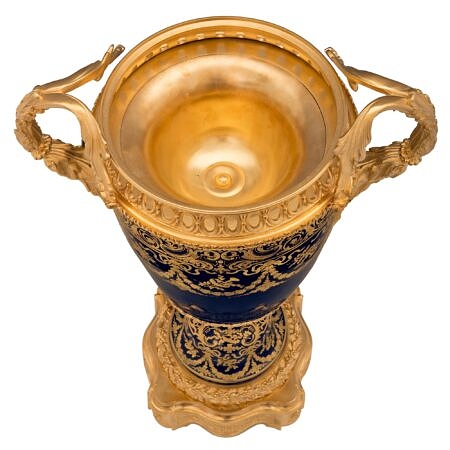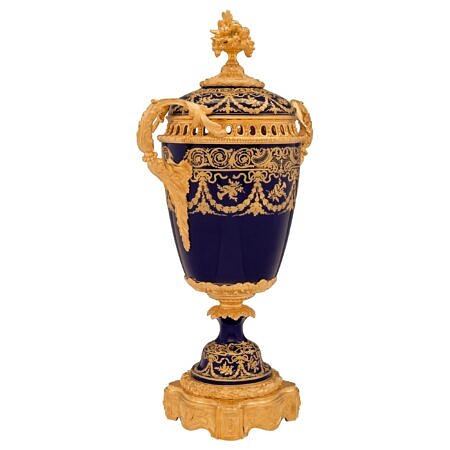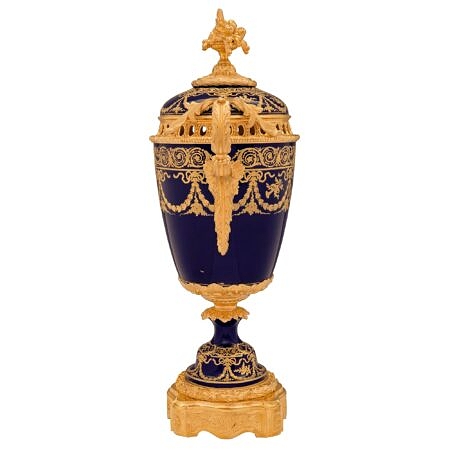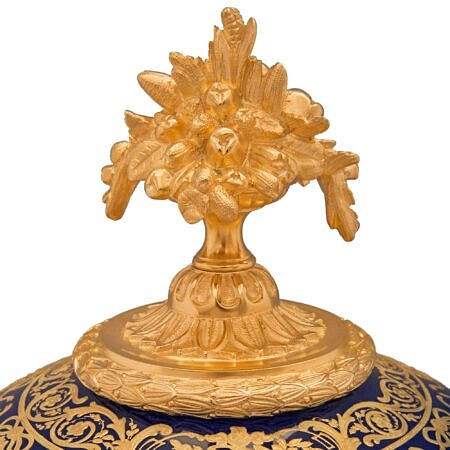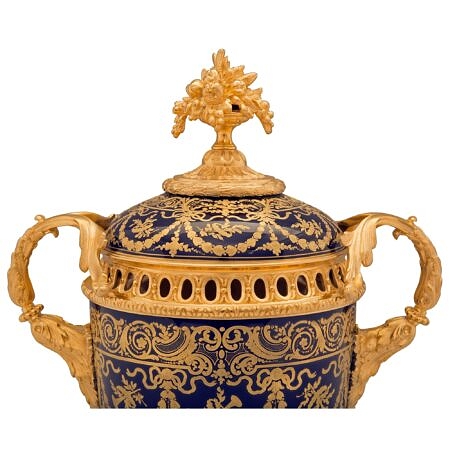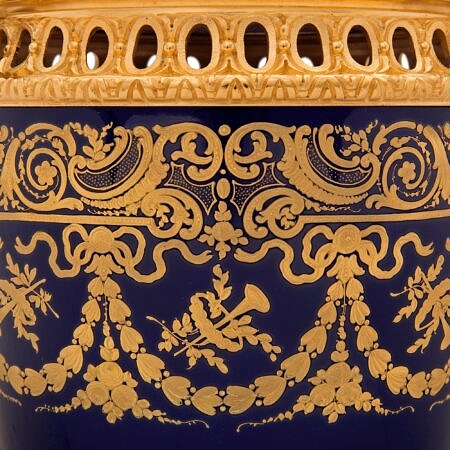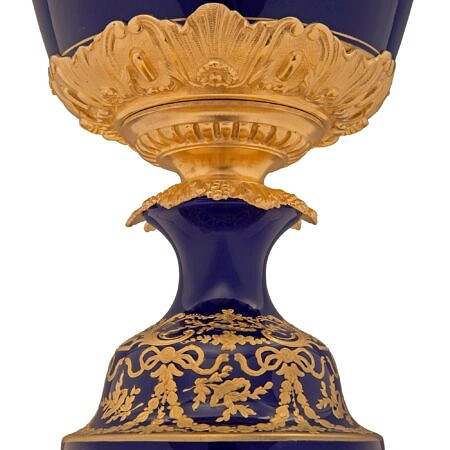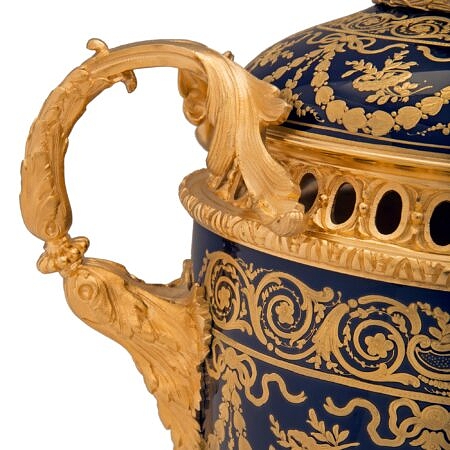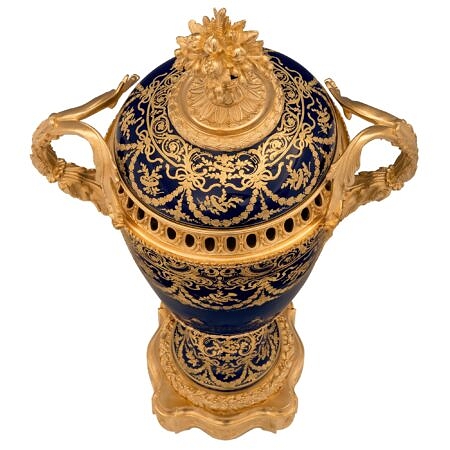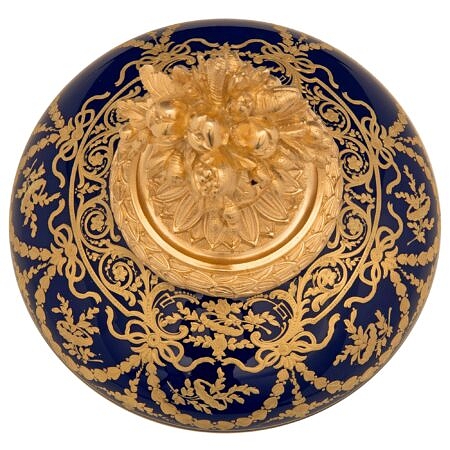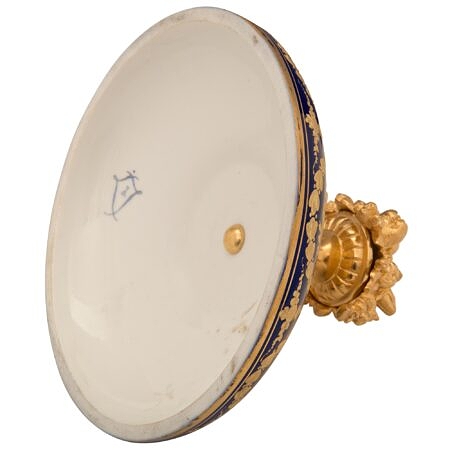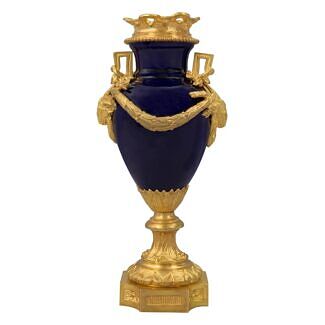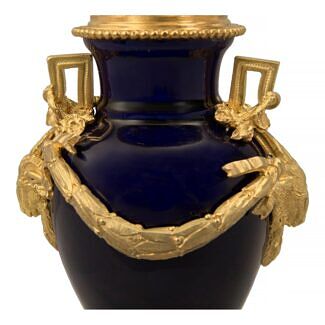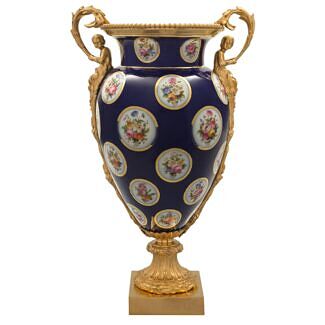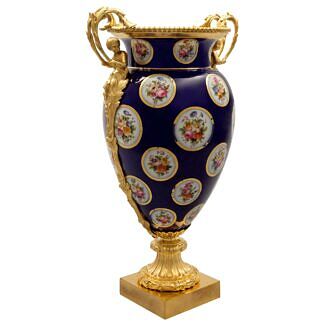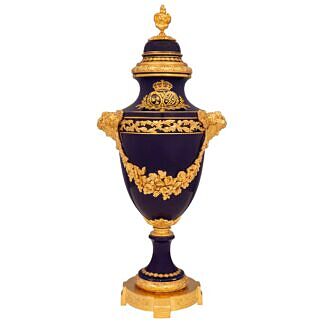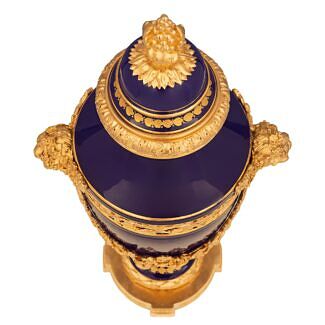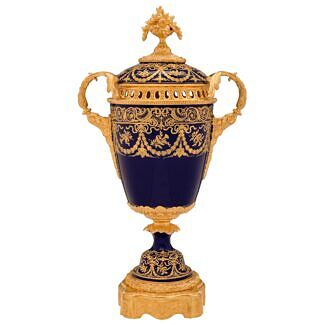A French 19th century Louis XVI st. Belle Époque period Sèvres porcelain and ormolu lidded urn signed Sèvres
List: $13,800.00
A stunning and extremely high quality French 19th century Louis XVI st. Belle Époque period Sèvres porcelain and ormolu lidded urn signed Sèvres. The cobalt blue urn is raised by an exceptional square ormolu base with beautiful scalloped shaped sides... — Read More
A stunning and extremely high quality French 19th century Louis XVI st. Belle Époque period Sèvres porcelain and ormolu lidded urn signed Sèvres. The cobalt blue urn is raised by an exceptional square ormolu base with beautiful scalloped shaped sides displaying a most decorative movement and adorned with wonderful foliate designs. The cobalt blue porcelain socle shaped pedestal support displays charming intricately detailed hand painted gilt foliate designs with tied ribbons and flowing garlands above a superb richly chased wrap around berried laurel ormolu band. The elegantly shaped body is encased by beautiful ormolu leaves at the base and displays additional exceptional gilt accents of luxuriant scrolled foliate designs, swaging laurel garlands, and charming musical instruments. Impressive scrolled ormolu handles of richly chased acanthus leaves lead up each side in an outstanding satin and burnished finish centering the pierced rim with a fine foliate band. The removable lid also displays lovely and most decorative gilt designs and a striking top blooming flower finial with an intricately detailed berried laurel band and which lifts off to reveal the signature and finished interior. — Read Less
- Item # 12131
-
H: 26.25 in L: 14.25 in D: 9.25 in
H: 67 cm L: 36 cm D: 23 cm
- France
- 19th Century
- Ormolu, Porcelain
- Belle Époque Period Read More, Louis XVI st. Read More
- Sèvres Read More
It was founded through the support of King Louis XV of France and at the initiative of Madame Pompadour to be located near her Château.
Due to Sèvres’ reputation for excellence and prestige, it has always attracted some of the best artists throughout history; François Boucher, Albert-Ernest Carrier-Belleuse, Étienne Maurice Falconet, Alexandre Fragonard and August Rodin, just to name a few. Many of these artworks can be seen at the Louvre Museum and the Musée National de Céramique in France.
Initially, Sèvres created a soft paste porcelain know as Biscuit de Sèvres. In 1768 the Bordeaux chemist Villaris and Jean Baptiste Darnet discovered deposits of Kaolin on French soil. In 1771 the Royal Academy sent a report on the creation of hard paste porcelain at which time Sèvres began manufacturing hard paste porcelain.
Louis-Simon Boizot (1743–1809) was a French sculptor renowned for creating Biscuit de Sèvres models, and was the director at Sèvres from 1774-1800, followed by Alexandre Brogniart(1800-1847) and Henri Victor Regnault in 1854.
Related products
-
# 8810 - H: 8" D: 3"
-
# 9194 - H: 16" L: 10" D: 7"
-
# 11998 - H: 20" L: 8" D: 6"


